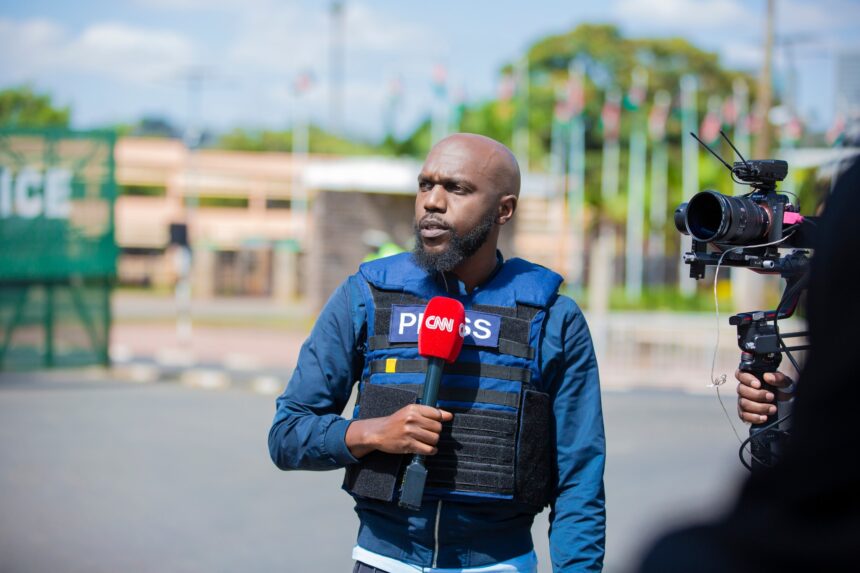CNN international correspondent and veteran Kenyan journalist Larry Madowo has made global headlines after boldly confronting misinformation shared by former U.S. President Donald Trump about alleged racial violence in South Africa.
Madowo recently delivered a powerful fact-check segment on CNN, dismantling Trump’s “white genocide” narrative by proving that the graphic images shared to support the claim were not from South Africa — but from the Democratic Republic of Congo. This exposé sparked a wave of support for Madowo, but also subjected him to vile racist abuse and disturbing death threats.
The controversy began when Trump, during a highly publicised discussion on race-based violence, held up images he claimed showed “white South African farmers” killed in a spate of targeted attacks. However, Madowo’s investigative work revealed that the photos were actually taken in Goma, DRC, and depicted victims of rebel violence — not racial killings in South Africa.
“The pictures Trump shared were lifted from a Reuters video showing humanitarian workers in the aftermath of an M23 rebel assault,” Madowo explained. “They were not taken in South Africa and had nothing to do with white farmers.” His report was supported by Reuters themselves, whose journalist confirmed the original context of the footage. This critical correction underscored the dangerous impact of spreading unchecked misinformation, especially when coming from influential global leaders.
Following the broadcast, Madowo began receiving alarming threats and hate mail. One email, sent from a newly created address, contained graphic racial slurs and even wished terminal illness upon the journalist. Another message ominously stated: “It’s gonna be a long four years,” alluding to Trump’s political tenure.
But Madowo responded with his signature composure and wit. Posting some of the hate mail on social media, he wrote: “This person created a new email address just to be racist to me. I admire the commitment.” The sarcastic remark reflected Madowo’s refusal to be intimidated — even in the face of violent rhetoric.
Despite the hate, Madowo’s brave stance has drawn overwhelming support from fellow journalists, public figures, and fans. Kenyans in particular took to social media platforms to defend him and highlight the critical importance of factual journalism. “Continue advocating for what is morally right. God is on your side,” one netizen commented. Another added: “As Kenyans, we won’t stay silent. If they can’t handle facts, that’s on them.”
The incident reignited discussions around press freedom, online hate, and the responsibility of leaders to rely on verified information before making public claims. This is not the first time Madowo has stood firm against false narratives. Known for his fearless reporting across Africa and beyond, he has consistently pushed for accuracy in international media coverage. His latest fact-check has now become a global example of how misinformation can be weaponized — and why journalists must remain vigilant.
As the backlash continues, Madowo remains defiant, using humour and professionalism to spotlight a serious issue: the growing danger of fake news, especially when amplified by powerful voices. “Truth is not always popular,” he wrote in a follow-up post, “but it is always necessary.”
Larry Madowo’s bold reporting has not only uncovered a major misinformation scandal but also sparked important conversations about race, media ethics, and global accountability. As social media continues to react and the facts speak louder than fear, one thing remains clear — journalism still matters. And Larry Madowo is proving exactly why.














